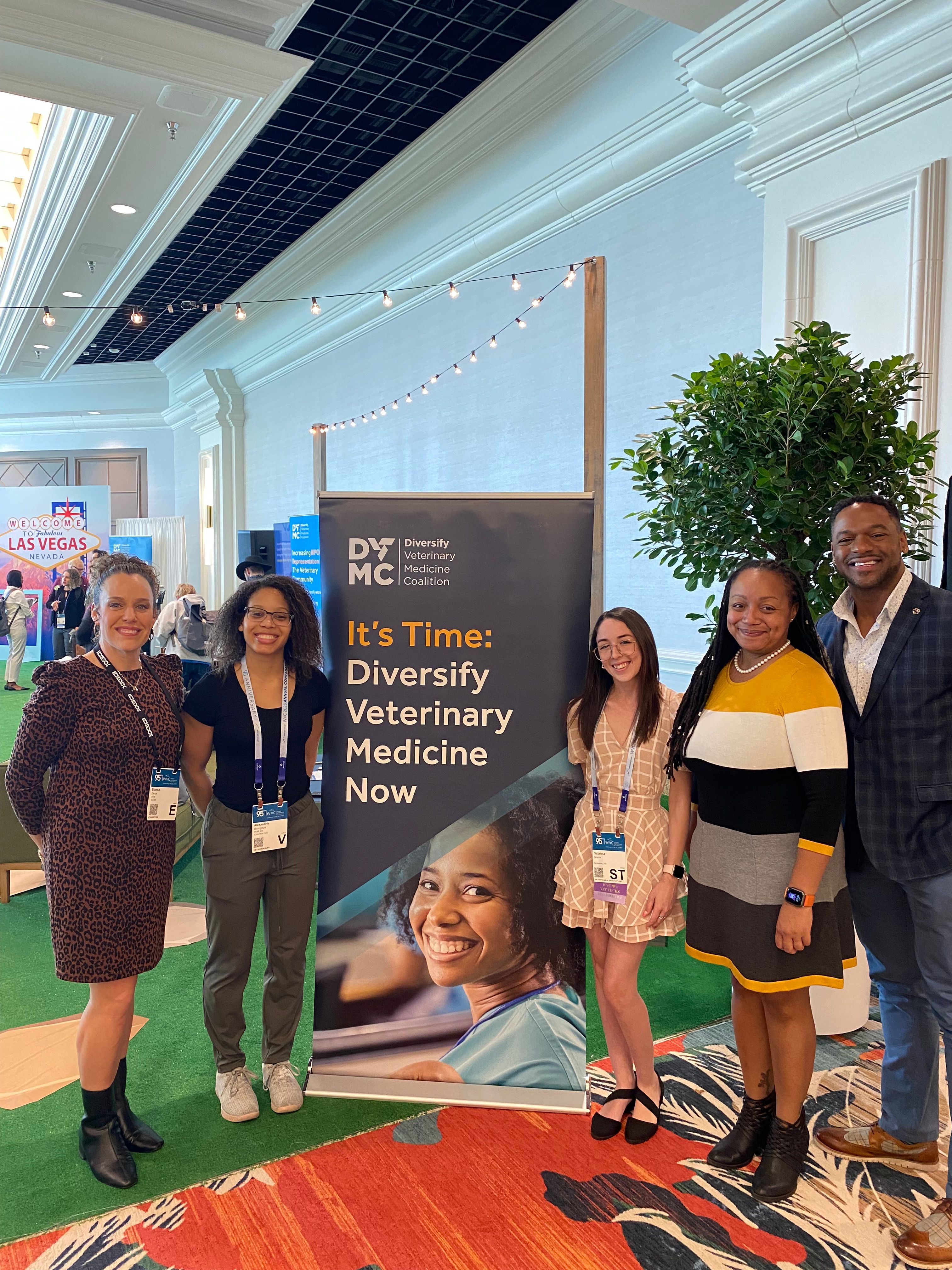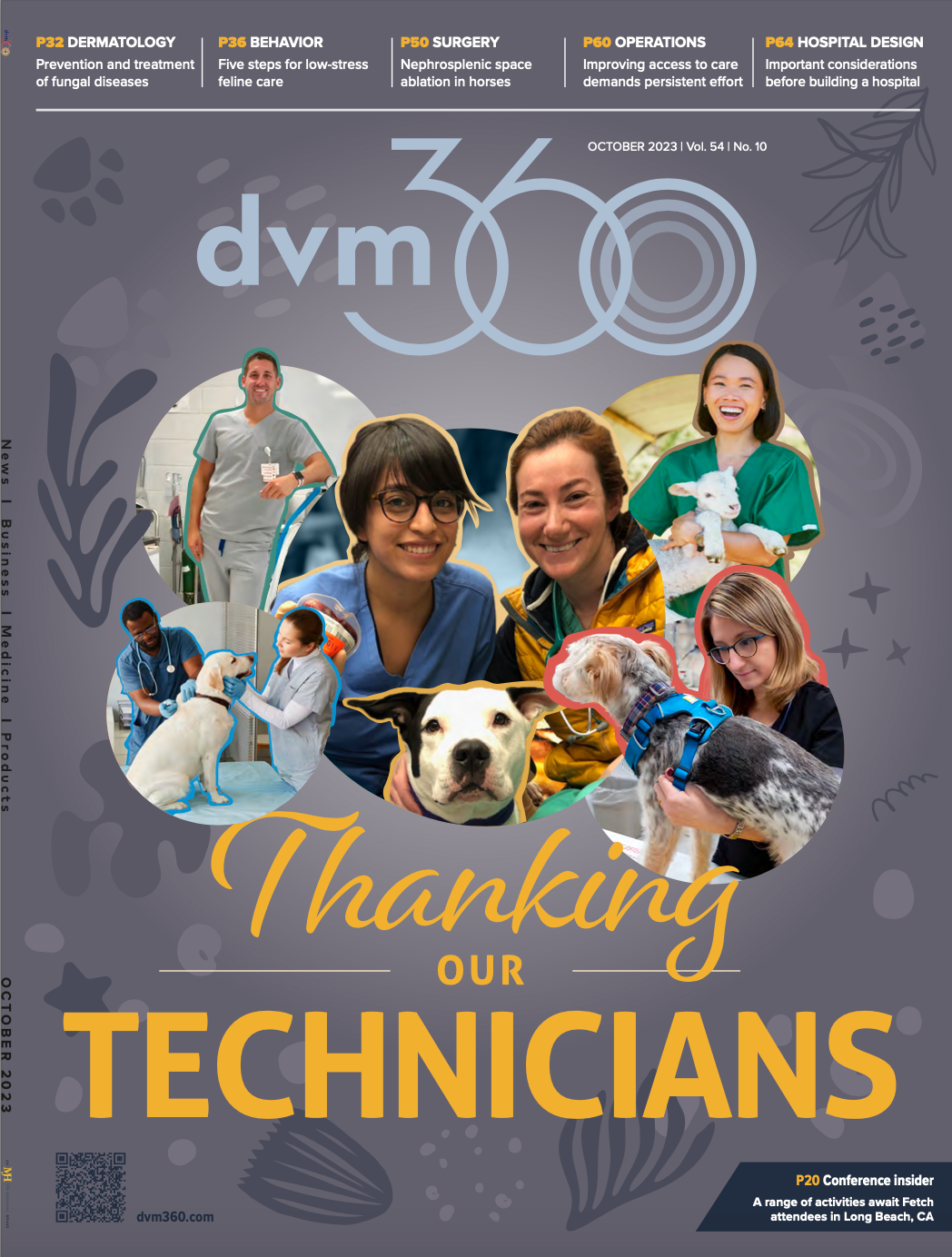4 characteristics of the Diversify Veterinary Medicine Coalition on its third anniversary
Motivated, action oriented, impactful, and supportive—this organization is making a difference by promoting diversity in veterinary medicine
This article was updated on October 25, 2023.
We are pleased to congratulate the Diversify Veterinary Medicine Coalition (DVMC) on its third anniversary and wanted to learn more about its accomplishments. In honor of this milestone, we asked for 4 of its key characteristics. Here is what we learned:
1. The DVMC is motivated
This organization exists to remove barriers for students who are interested in veterinary medicine from the black, indigenous, people of color (BIPOC) communities (also referred to as Underrepresented Veterinary Minorities [URVMs]). The DVMC was founded in 2020 by Molly McAllister, DVM, MPH, chief medical officer of Mars Veterinary Health. In 2020, the nation was gripped with dual crises of the COVID-19 pandemic and civil unrest sparked by the killing of George Floyd. For some time, veterinary medicine has grappled with being reflective of the population it serves, and the industry was answering a nationwide call to action on social injustice. The mission of the DVMC is to diversify the veterinary medical profession by increasing representation of BIPOC individuals.
2. The DVMC is action oriented
The DVMC is buoyed by the support of industry partners. The DVMC board consists of representatives from sponsoring organizations, including Mars Veterinary Health, Boehringer Ingelheim, Hill’s Pet Nutrition, Idexx Foundation, Zoetis Animal Health, and Chewy Health. Veterinary organizations, universities, and affinity groups—including the American Association of Veterinary Medical Colleges (AAVMC), The Ohio State University College of Veterinary Medicine, the National Association for Black Veterinarians (NABV), and the Multicultural Veterinary Medical Association (MCVMA)—serve as DVMC board advisers.
3. The DVMC is impactful
DVMC’s 2023 travel grant reception at the Western Veterinary Conference. Pictured from left to right are Bianca Zenor, DVM, MS, Alexandria Bourgeois, DVM, Gabriela Novoa, Cherice Roth, DVM, MS, and Courtney Campbell, DVM, DACVS-SA (Photo courtesy of DVMC)

The DVMC is a nonprofit 501(c)(3) organization that has awarded scholarships to 10 undergraduate students. The scholarship is awarded to support the final 2 years of undergraduate training and all 4 years of veterinary medical training. One of the DVMC’s undergraduate scholars was set to attend Tuskegee University College of Veterinary Medicine this fall. The DVMC has partnered with the 1890 Universities Foundation to award scholarships to third-year undergraduate students who wish to pursue veterinary medicine as a career. The 1890 Universities Foundation is the umbrella organization for all 1890 land-grant institutions, historically black colleges and universities that focus on agricultural, mechanical, and technological academic training. A common feature of 1890 land-grant institutions is university on-campus farms, which help to ensure undergraduate students have extensive hands-on experience. Scholarship applicants are often animal science majors, but the scholarship is open to all students who wish to pursue veterinary medicine. This allows the DVMC to help students from myriad fields of study, including chemistry, biology, premedicine, preveterinary medicine, agriculture, zoology, and microbiology.
Although scholarships give students a much-needed financial boost, the internship that follows gives them a professional springboard. Internships are offered by DVMC-sponsoring organizations, and they provide students with valuable hands-on animal experience. These work experiences also serve to broaden students’ exposure to the many career opportunities available within veterinary medicine.
The DVMC also provides travel grant scholarships to continuing education conferences. Travel grants provide an avenue for students to network, fellowship, and learn from the best in the industry. The DVMC partners with the conference organizations to cover travel, lodging, and registration fees. Travel grants are currently being offered at the VMX: Veterinary Meeting & Expo; the WVC Annual Conference; and the American Veterinary Medical Association Convention. More than 30 veterinary students and early-career professionals have been awarded travel grants. During these conferences, travel grant recipients are publicly congratulated for their achievements. All conference attendees are invited to travel grant receptions, which is a great way for individuals to see the DVMC in action.
4. The DVMC is supportive
It is committed to inspiring others through impactful storytelling and diversity, equity, inclusion, and belonging education. Highlighting the barriers facing URVMs, the DVMC seeks to use its position to influence the veterinary medical profession to ignite change. The needs of the veterinary BIPOC community will evolve, and the DVMC is ready to navigate any potential new barriers. Advisory board members, such as the AAVMC, NABV, MCVMA, and The Ohio State University College of Veterinary Medicine, have resources that have been used to guide much of the DVMC’s work over the past 3 years.
The DVMC has accomplished a thorough agenda in its infancy, and the future outlook is just as ambitious. There is always more that can be done, and you can be a part of the DVMC’s efforts. Fortunately, we are fielding more talented scholarship applicants with each cycle, but resources are limited. If you represent a company or veterinary clinic that is interested in DVMC sponsorship opportunities, please email info@diversifyvetmed. org for additional information.
Kemba L. Marshall, DVM, MPH, earned her doctor of veterinary medicine degree from the University of Florida, Gainesville, and a master’s degree in public health from the University of Iowa, Iowa City. She completed a residency in avian and exotic animal medicine at the University of Tennessee College of Veterinary Medicine, Knoxville, and is a boarded avian specialist of the American Board of Veterinary Practitioners. She is director of veterinary services, Purina Animal Nutrition Center, Gray Summit, MO.
Courtney Campbell, DVM, DACVS-SA, has enjoyed a career as a board certified veterinary surgeon and a veterinary journalist. He specializes in orthopedic, soft tissue, and minimally invasive surgery. He most recently practiced at a specialty surgical practice in Ventura, California and has transitioned to a traveling surgeon in southern California. Campbell is chair of the DEI Committee for the American College of Veterinary Surgeons and he is the communications chair for the Diversify Veterinary Medicine Coalition.
